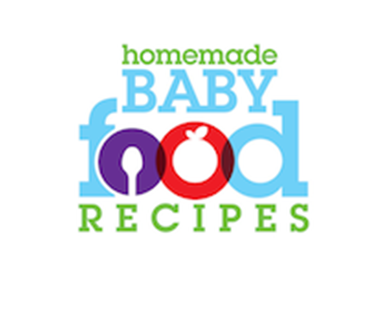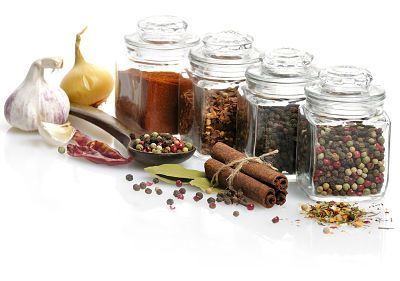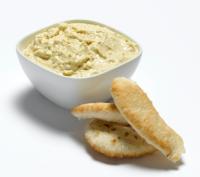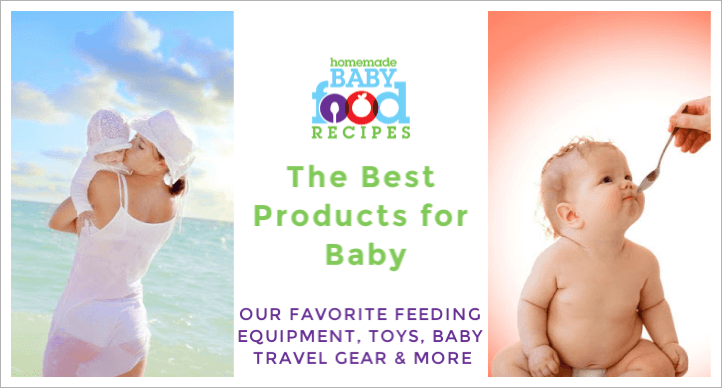Can Babies Eat Spicy Food?
We are often asked ‘Can Babies Eat Spicy Food?’ – so this page is designed to help you understand more about the use of herbs and spices in baby food, as well as answer your questions about giving babies garlic.
PLEASE NOTE: The information given here is meant as a guide. It does not replace professional medical advice. You should always discuss the introduction of any new foods (including herbs and spices) with your child’s doctor.
Adding a little spice to baby’s meals
Contrary to what some commercial baby food manufacturers would like you to believe…baby food does not have to be bland and uninteresting!
But the thought of ‘spicy’ baby food is worrying to some parents – will it give their baby a terrible stomach ache or cause an awful bout of diarrhea?
Certainly we wouldn’t advise mixing herbs and spices into your baby’s first foods.
Aside from the danger of introducing two new foods simultaneously (and therefore being unable to tell which is the culprit if your baby subsequently suffers from an allergic reaction), it’s kinder on your baby’s developing digestive system to start off with a simple, single ingredient such as mashed avocado, sweet potato or infant cereal.
But once your baby is happily accepting solid foods, then he may welcome certain spices (think aromatic, rather than hot), herbs and garlic in his meals.
The addition of these seasonings is a healthy way to add some extra flavour (remember that you should not add salt to your baby’s food) – and a sprinkle of herbs or a dash of spice can turn a plain and uninspiring dish into something exciting that your baby may really enjoy!
Remember – treat herbs, spices and garlic as you would any new food.
You can introduce them from 6 months of age, but they should be introduced separately, following the four day rule and only with the consent of your child’s doctor.
If there is a family history of food allergy, or if your baby has a “delicate” digestive system and is prone to upset tummies, then you may prefer to delay the introduction of herbs and spices for another few months at least.
Getting started with spices
Many infants across the world enjoy very spicy foods from an early age, although you may prefer to start with milder flavours.
This MSNBC article was a real eye-opener for many parents when it was released, as it challenged the traditional “rules” of infant nutrition and dared to suggest that these rules are, in fact, rooted in myth. The pediatricians who wrote the article felt that it was perfectly safe to offer western babies a far more varied and inspired diet than the bland fare they are currently “enjoying”!
And consider this – if you eat a lot of spicy food and garlic yourself and breast feed your baby, then he is ALREADY familiar with these tastes, through your milk. What’s more, breastfeeding experts often recommend that mom eats garlic because it makes baby nurse better!
what are the benefits?
Besides adding an interesting dimension to the simplest dish, herbs and spices offer health benefits of their own. Here are some examples
- Cinnamon has been used across the world for medicinal purposes for many years. It is an excellent source of manganese, iron, fibre and calcium. Cinnamon supports the digestive system and – according to an article published by Science Daily – can even kill “unfriendly” bacteria like E. coli. (please note, however, that cinnamon is a potential allergen, so it should be introduced with care with your doctor’s consent. You may prefer to delay the introduction of cinnamon altogether if there is a family history of food allergy). If you prepare any of your baby’s food with cinnamon, don’t forget to take a sniff… the scent is said to boost brain function! Read more about using cinnamon here.
- Garlic is a powerful anti-oxidant (see our blog article ‘The Goodness of Garlic‘).
- Turmeric has anti-oxidant properties (read our article ‘Why Turmeric is One of the Best Spices You Can Give Your Baby‘).
- Cumin is believed to help support the digestive system.
- Coriander is classified as both a herb and a spice, because its leaves and seeds are used. It is a great source of magnesium, manganese, fibre and iron (read our article about the benefits of using coriander seed in your baby food recipes).
- Dill contains many important nutrients, may help fight cancer and heart disease and may even aid digestion (see our article about making Dill-icious Baby Food).
- Nutmeg can have a soothing effect on an upset tummy.
- Ginger is also great at calming upset tummies, which is why it’s commonly recommended as a “cure” for morning sickness. It protects the body against bad bacteria and also helps eliminate gas from the intestines!
Spicy baby food ideas
Try adding a little dash of nutmeg to cooked or pureed vegetables – it compliments them really well! Nutmeg and cinnamon pair up perfectly with apple dishes, including baked apples and purees.
Add a little ginger to cooked carrots – the result is absolutely delicious! Ginger also tastes great with mashed bananas.
Try mixing a little sage with your baby’s veggies for a lovely, warm flavour.
Chives, with their mildly “oniony” flavour, are delicious on a baked potato topped with cheese.
The possibilities and combinations are, of course, endless. Experiment a little and see which flavours your baby prefers (observing the four day rule). And remember – by broadening your baby’s palate now and introducing him to a wide range of new tastes, you are far less likely to encounter problems with “fussy feeding” later on.
You will find many recipes on our site that incorporate a variety of herbs and spices – why not get started with our Indian baby food recipes and create a yummy curry for your baby tonight!
Homemade hummus:A wholesome and delicious food…
External links for more information
The Epicentre – a really useful encyclopedia of spices, their history and their uses



